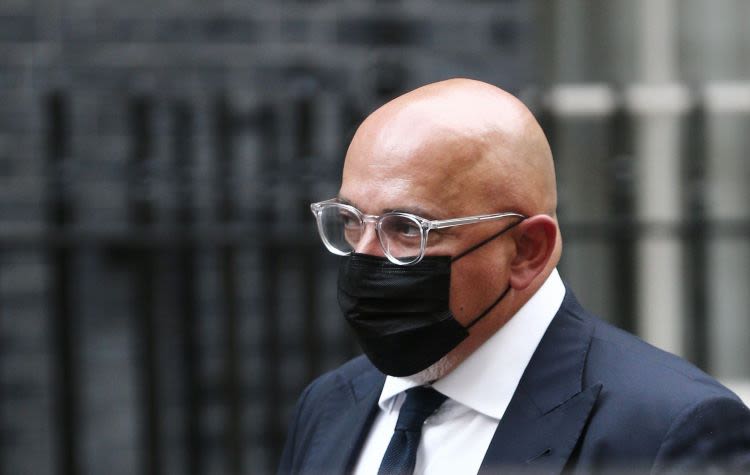By Ben Kerrigan-
Vaccines Minister Nadhim Zahawi has confirmed that 12-15 year olds will be offered the first jab if the coronavirus vaccine s from this month, despite concerns expressed by worried MPs .
The UK government confirmed the next phase in the vaccine roll out which will incluchildren outside the teenager bracket in order to minimise infections in the UK. The government said parental consent will be sought for the schools-based vaccination programme, but added that where conflict arises between a parent and a child, experts would assist both parties to reach an agreement, but allow the child to have his way if deemed competent.
On Monday, the UK’s four chief medical officers recommended the single dose for 12 to 15-year-olds – who are deemed at very low risk from the disease – saying factors such as disruption to education tipped the balance.
Prof Chris Whitty, the lead CMO for the UK, said it was a “difficult decision” and should not be seen as an “important and useful tool” for reducing school disruption in the coming months – and when combined with the marginal health benefit identified by vaccine advisory body the JCVI, it meant offering a Covid vaccine to all children .
Mr Zahawi said the School Age Immunisation Service would deliver most of the programme, with separate vaccination sites used for schools where this was not possible.
He said clinicians would share information on the vaccine with parents, and if there was a difference in opinion between a parent and child, a clinician would bring them together to try and reach a consensus.
However, in the rare cases agreement is not reached, the child could give consent themselves he added.
Paul Whiteman, general secretary of the National Association of Head Teachers, said some of the union’s members had already received letters from pressure groups threatening legal action if vaccination took place in schools.
He told BBC Radio 4’s Today programme any advice to parents and children on the vaccine should come from health professionals rather than teachers, to avoid any unpleasant
Health and Social Care Secretary Sajid Javid said he accepted the recommendation from the chief medical officers aimed at protecting young people from catching Covid, reducing transmission in schools and keeping pupils in the classroom.
“Our outstanding NHS stands ready to move forward with rolling out the vaccine to this group with the same sense of urgency we’ve had at every point in our vaccination programme,” he said.
Health Benefits
Two weeks ago, the JCVI advised against vaccinating 12- 5 year olds, adding that the decision not to recommend the vaccine to all healthy children was based on concern over an extremely rare side effect of the Pfizer and Moderna vaccines which causes heart inflammation, and can lead to palpitations and chest pain.
Underlying the advise was 9naideration of data from the US, where millions of young teenagers have been vaccinated. Wide data suggests there are 60 cases of the heart condition for every million second doses given to 12 to 17-year-old boys (compared to eight in one million .
However, because children are at such low risk from the virus, the JCVI decided that vaccination would offer only “marginal gain” and, therefore, there was “insufficient” evidence to offer mass vaccination to this age group.
The JCVI said it was difficult to factor in long Covid in its advice because of the uncertainty over how common the rare side effect is in children, adding that that the condition appears to be less prevalent than in adults
“The available evidence indicates that the individual health benefits from COVID-19 vaccination are small in those aged 12 to 15 years who do not have underlying health conditions which put them at risk of severe COVID-19, advisers said.
“The potential risks from vaccination are also small, with reports of post-vaccination myocarditis being very rare, but potentially serious and still in the process of being described. Given the rarity of these events and the limited follow-up time of children and young people with post-vaccination myocarditis, substantial uncertainty remains regarding the health risks associated with these adverse events.
“Overall, the committee is of the opinion that the benefits from vaccination are marginally greater than the potential known harms (tables 1 to 4) but acknowledges that there is considerable uncertainty regarding the magnitude of the potential harms. The margin of benefit, based primarily on a health perspective, is considered too small to support advice on a universal programme of vaccination of otherwise healthy 12 to 15-year-old children at this time.
As longer-term data on potential adverse reactions accrue, greater certainty may allow for a reconsideration of the benefits and harms. Such data may not be available for consideration”.
The advise was eventually 9verruled by the UK government which has concluded it necessary for the vaccine roll out to go ahead for 12-15 year olds.

